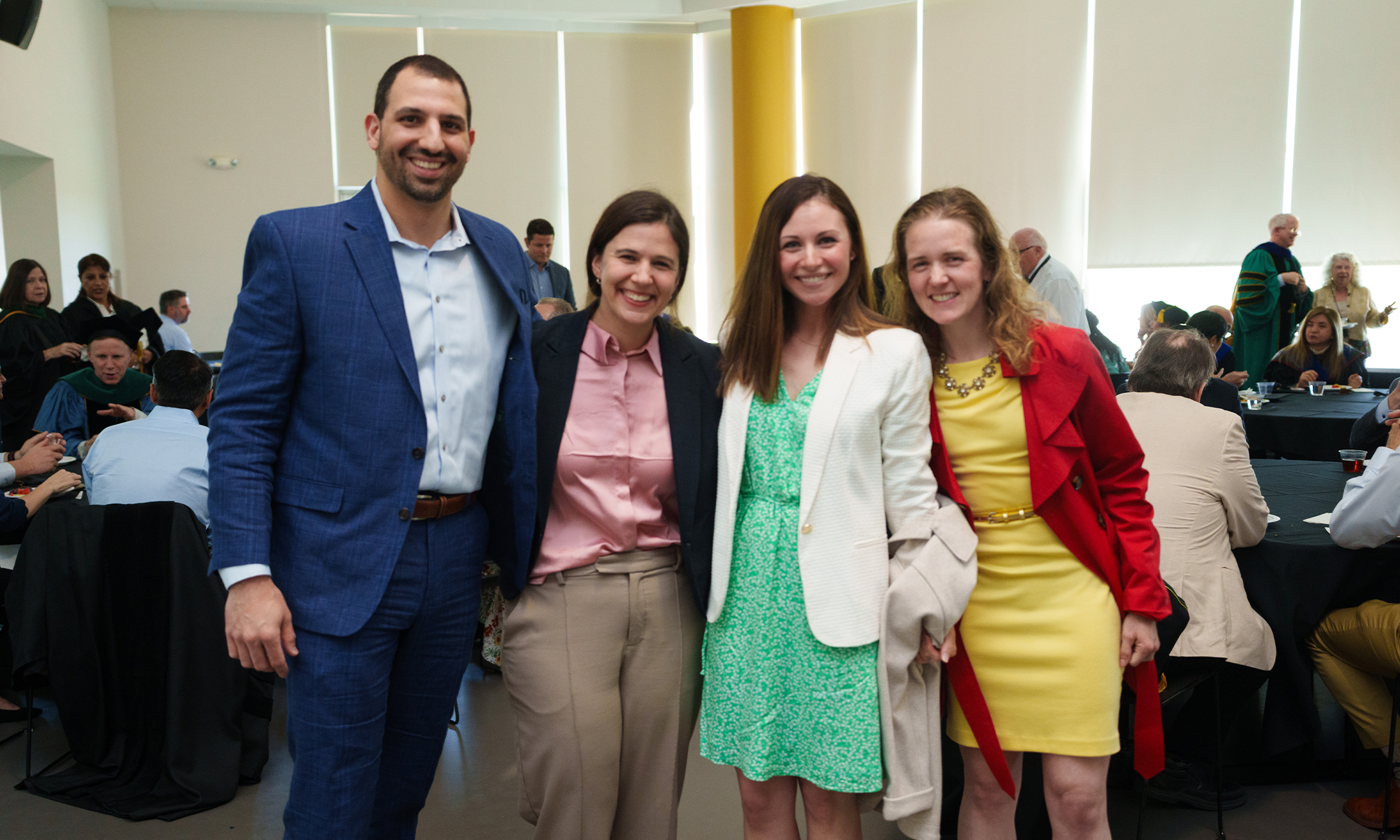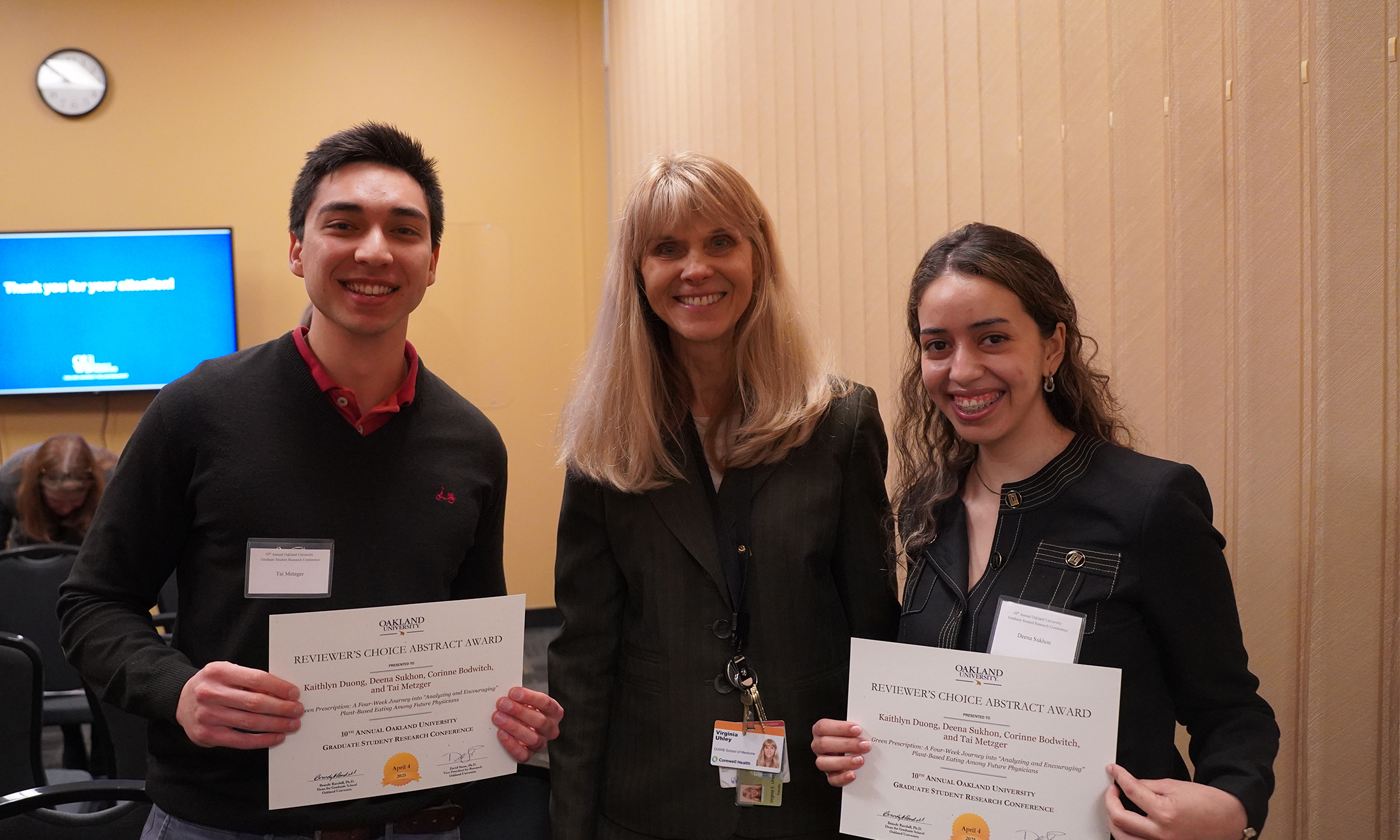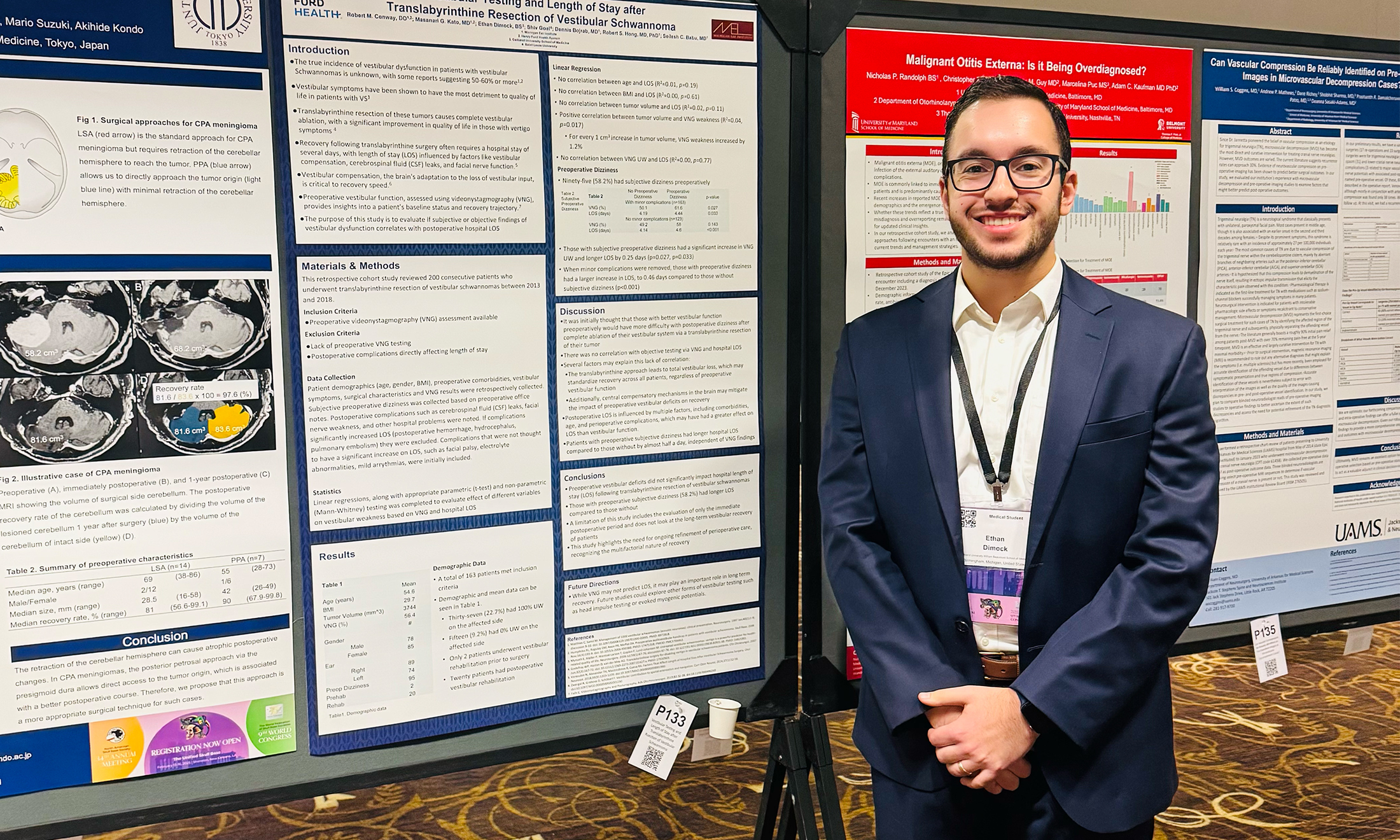Service-learning showcase
OUWB students highlight community impact at first-of-a-kind event
For the first time, Oakland University William Beaumont School of Medicine students presented their service learning projects in a schoolwide poster session, with hopes to draw more attention to the importance of community engagement and academic research.
Held this spring at Oakland University’s Oakland Center, the event featured student projects developed throughout their first two years of medical school, and in collaboration with community-based organizations. Their projects emphasized both community work and academic research, blending non-clinical experiences with personal reflection. In all, 22 posters were presented with the entire OUWB Class of 2027 contributing to their respective group posters.
“The students participate in a service-learning project that starts at the end of their first year and goes until the end of their second year. They are expected to engage with a community-based organization and create a project that not only helps the organization in the community but also facilitates their learning,” said Deidre Hurse, assistant professor, Foundational Medical Studies.
“At the poster session, it's an opportunity for them to showcase the work that they've done with the community-based organization and then allow some peer learning so that other students can learn from their experience as well.”
During the session, students shared how their projects addressed real-world issues, ranging from public health initiatives to educational outreach. Peer learning played a key role in the event, with the poster format allowing students to learn from each other's experience and research, as well as broaden their understanding of how medicine intersects with community outreach.
This year marked the first time the event aimed for a conference-like atmosphere, according to Yujin Oh, M.D., OUWB ‘18, assistant professor.
“Historically we've had the students present to their peers, but we have invited clinical faculty here as well,” he said. “We are encouraging the whole of OUWB to come out. We want this to feel a little bit more like a poster session that they would do at a conference.”
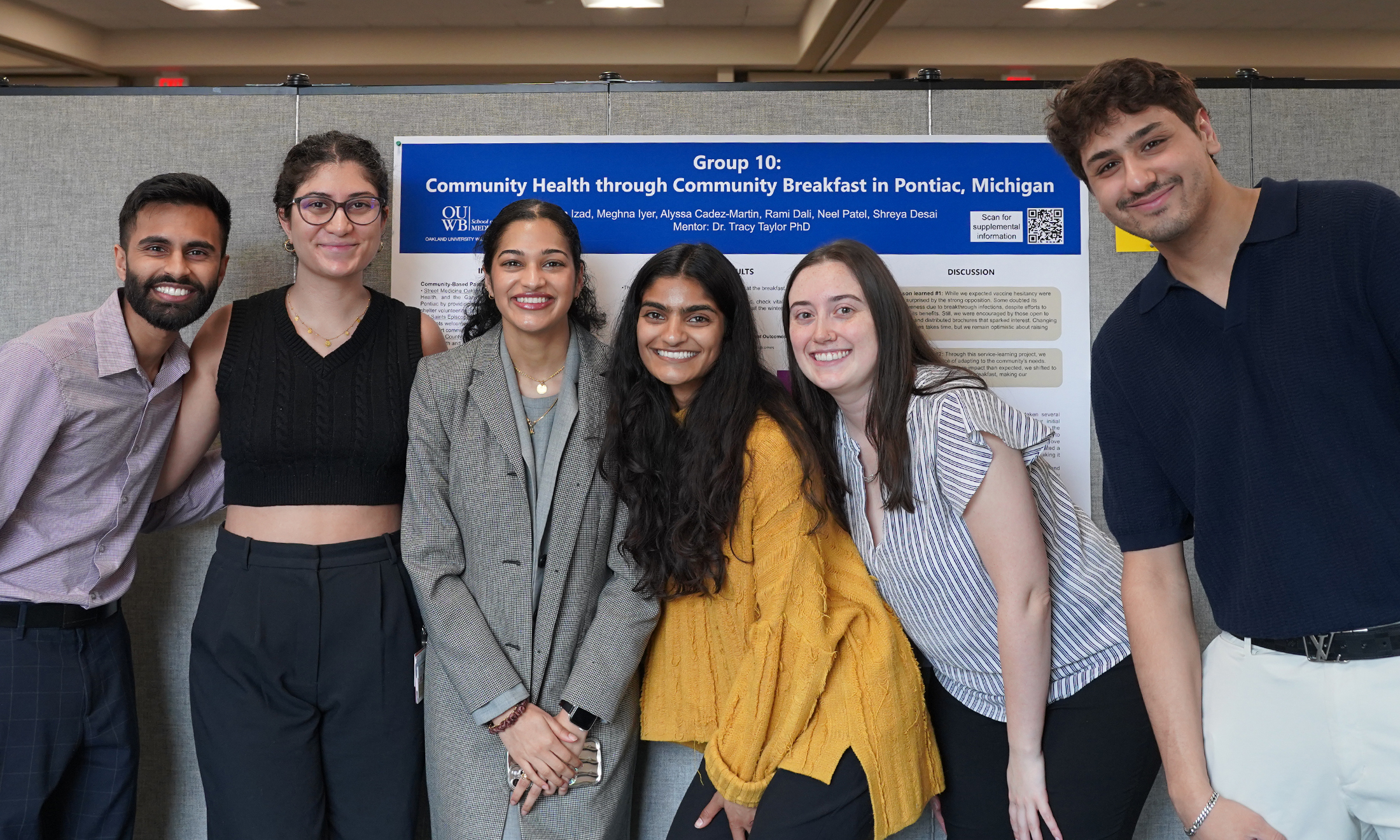 In all, 22 posters were presented by groups like this one. In all, 22 posters were presented by groups like this one. |
|---|
Hurse emphasized that the goal of the event extends far beyond academic skills. The projects are designed to help students develop empathy and understanding through hands-on engagement.
“We are committed to creating an environment where our students will become compassionate physicians that are able to serve the communities in which they work,” said Hurse. “These non-clinical interactions help them to not only humanize populations but also get insights into some of the challenges and difficulties that organizations may face, and how they correlate with health outcomes.”
Students highlighted the importance of having opportunities to share and present their research, serving not only to build communication skills but also to talk about their experiences working with local communities.
Mira Prabhu, M3, expressed her excitement about presenting her research at an event and shared how meaningful it was to work alongside classmates on real-world projects.
Prabhu worked with a local soup kitchen to explore healthier food options. She shared how the experience taught her how medical knowledge can directly support public health efforts outside of clinical settings.
“It's really interesting to see all of my classmates come together. I feel like oftentimes we're just so focused on our schoolwork,” said Prabhu. “To have the opportunity to work with different kinds of communities, to implement the knowledge that we’ve learned in different classes, and to help different community organizations is a really great experience.”
Prabhu said “gaining presentation skills is something that we all love the opportunity to have.”
“It's nice to share knowledge with our classmates,” she said. “We're passionate about our projects, and to be able to share that with our classmates and to see what they're doing as well is really exciting.”
Other students echoed similar sentiments, noting how the poster session helped them see the broader impact of their efforts and reflect on their future roles as health care professionals.
“It's really insightful for us to see the work our peers have done interacting with the community over the year,” said Akhil Reddy, M3. “In medical school, we're obviously thinking about the course material and more technical things, but events like these are a nice way to remind us of why we got into the profession in the first place.”
He said getting to learn from different classmates’ diverse service-learning experiences expanded his knowledge of health care and its role outside clinical settings.
“It's a privilege to have events like these for our class,” said Reddy. “Getting insight from other groups who have volunteered with different aspects of the community and different populations really contributes to our holistic understanding and knowledge as doctors.”
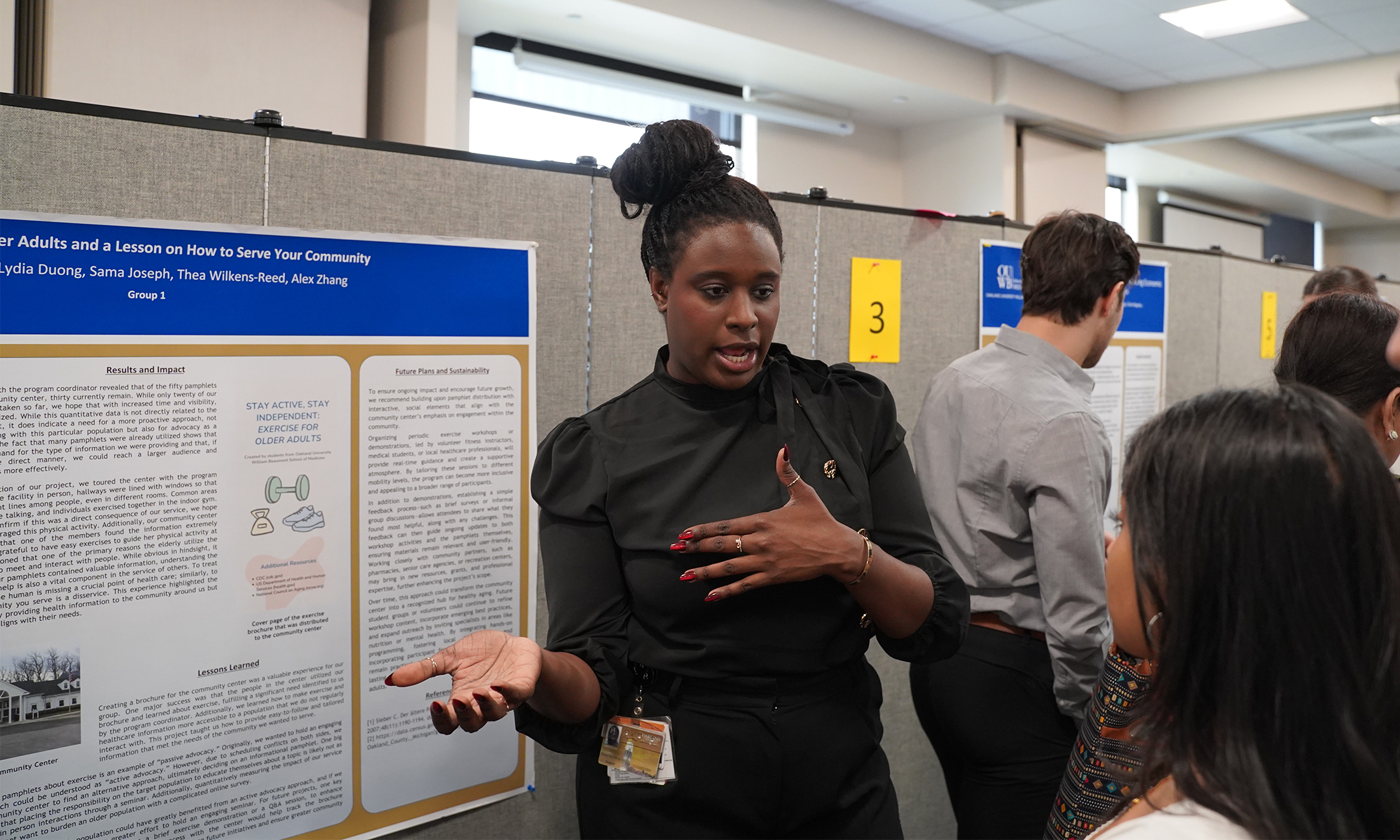
 July 15, 2025
July 15, 2025
 By Mallory Waligora
By Mallory Waligora